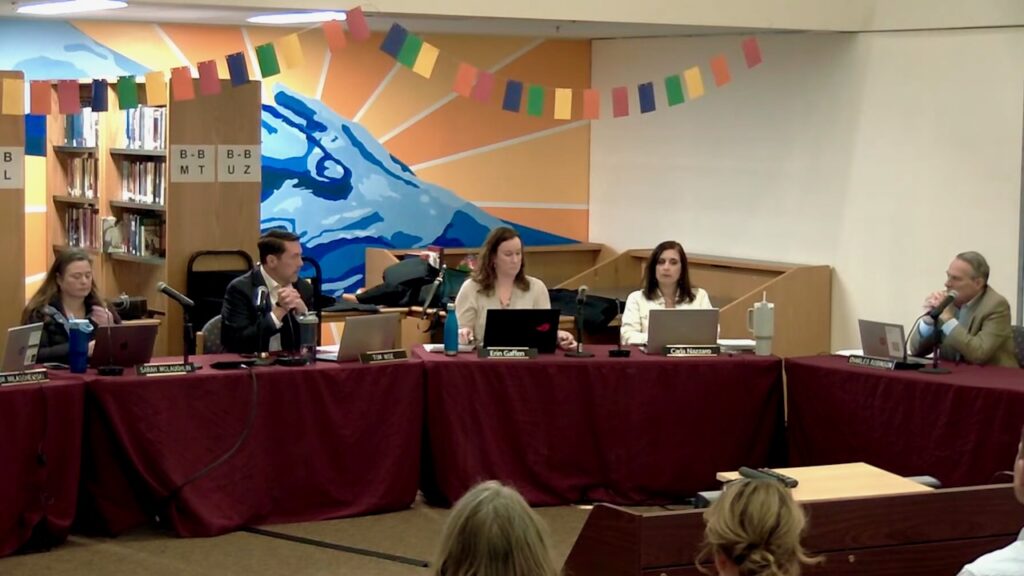
READING, MA — Superintendent of Schools Thomas Milaschewski announced to the School Committee on Thursday that the Killam School Building Committee has launched a website to help keep the community informed about the project’s progress. Milaschewski highlighted the contributions made by School Committee member Carla Nazzaro and Christopher Haley in making the website a reality. Nazzaro noted that Haley donated his time and skill, taking no payment for the project, saving taxpayers thousands of dollars in the process. The website is located at www.killamschool.com and contains information regarding the project team, supporting documents, meeting minutes, and project updates.
Members of the special education leadership team reported to the committee on the results of some of the program reviews it has recently undertaken. Director of Special Education Alison Wright noted several updates that are needed across all the programs, including a program administrator, a transition specialist, and revised program descriptions, which define the mission, philosophies, and desired outcomes for each program.
Wright also noted the need for more professional development across programs as well as increased parent and staff communication. Many of these projects have been worked on or have been completed over the school year. She continued, sharing a desire for improved transition planning for students moving between schools and from grade level to grade level. “This is a big focus for us this year,” Wright commented.
REACH director Kelly DiCato indicated that her program is working on providing additional training in ACT therapy, an approach that stems from traditional behavior therapy. ACT can help students learn to stop avoiding and denying their inner emotions and, instead, accept that these feelings are appropriate responses to certain situations. She also noted that work with Parker Middle School principal Rochelle Rubino regarding the school’s schedule is underway.
The SOAR program is busy hiring staff and working on program structure and instruction along with staff training. A review of the LEAD program has yet to be concluded, and a report is due in the spring. The EMBARC program is building a comprehensive K -12 curriculum for its participants, while Director Adam Blanstien did highlight some successes, such as the unified sport program. Kerry Wilcox, director of the RISE program, shared about work being done in program culture, communication, and identity. She also shared the need to hire an educational team supervisor. The LIFT program is slated to start this coming summer.
School Committee chair Thomas Wise questioned the need for all students to have access to the Google Read and Write tool, wondering if it is “overcompensation” for general education students. Assistant Superintendent for Teaching and Learning Sarah Hardy shared that the platform has tools that all students should be taught to use, like the read back tool that can “leverage and improve academics.” Wright noted that the tool can help improve vocabulary, with Assistant Superintendent for Student Services Jennifer Stys chiming in that if every student has access to it, the students who really need it will not feel as awkward using the tool.
After a brief recess, Hardy led a discussion, providing the committee with an update on implementing the ARC Core literacy curriculum. She reminded the committee that K-2 students are in year one of implementation, while students in grades 3-5 are in the second year of experiencing the curriculum shift. K-8 Humanities Coordinator Erin Burchill emphasized the use of “daily whole class lessons,” which aid in punctuation, sentence structure, and phonological awareness in students. She also highlighted work students do in the word study notebooks.
Burchill continued to report on the knowledge building portions of the curriculum that use content knowledge units, such as a recent grade one unit on bugs, to help build content and academic vocabulary as well as provide frequent writing practice through the use of the topic and which are grounded in evidence-based research. Joshua Eaton Elementary School Principal Caitlin Shelburne also shared information regarding differentiated instruction using toolkits with small groups of students.
Hardy concluded, noting that the program will require continued collaboration with staff along with training for K-2 teachers on the scope and sequence of the foundational skills being taught and on data collection procedures. She also noted the need to aid teachers with background content knowledge as well as some customization of the program for Reading’s needs, specifically in writing rubrics, scope and sequence for grammar instruction, and additional vocabulary routines.
In response to the update as well as experience with his own children, School Committee member Shawn Brant complemented the program, “[The curriculum] doesn’t feel like rote instruction for the kids.”
Wise questioned whether or not the “art of teaching” was being lost through such a “scripted” program. Burchill responded that while it may be “scripted” regarding the toolkits, the curriculum otherwise provides teachers with a framework for teaching. Projects and other supplemental activities still allow for teacher autonomy. Burchill, referencing the unit on bugs, noted that one school invited Terminex to their school to give a presentation and answer student questions.
Milaschewski shared that only 220 of the expected 268 kindergarten students have registered for next year at this point. He also reported that his team is “tracking down those that they know are out there” and will update the committee later in the spring on results, along with any possible consolidations that may have to occur due to enrollment trends.
The committee ended the meeting with a brief discussion regarding proposed Town Charter updates. Wise shared his belief that most of the proposed updates are grammatical in nature, and few will affect the School Committee.
The School Committee adjourned at 9:30 pm.

